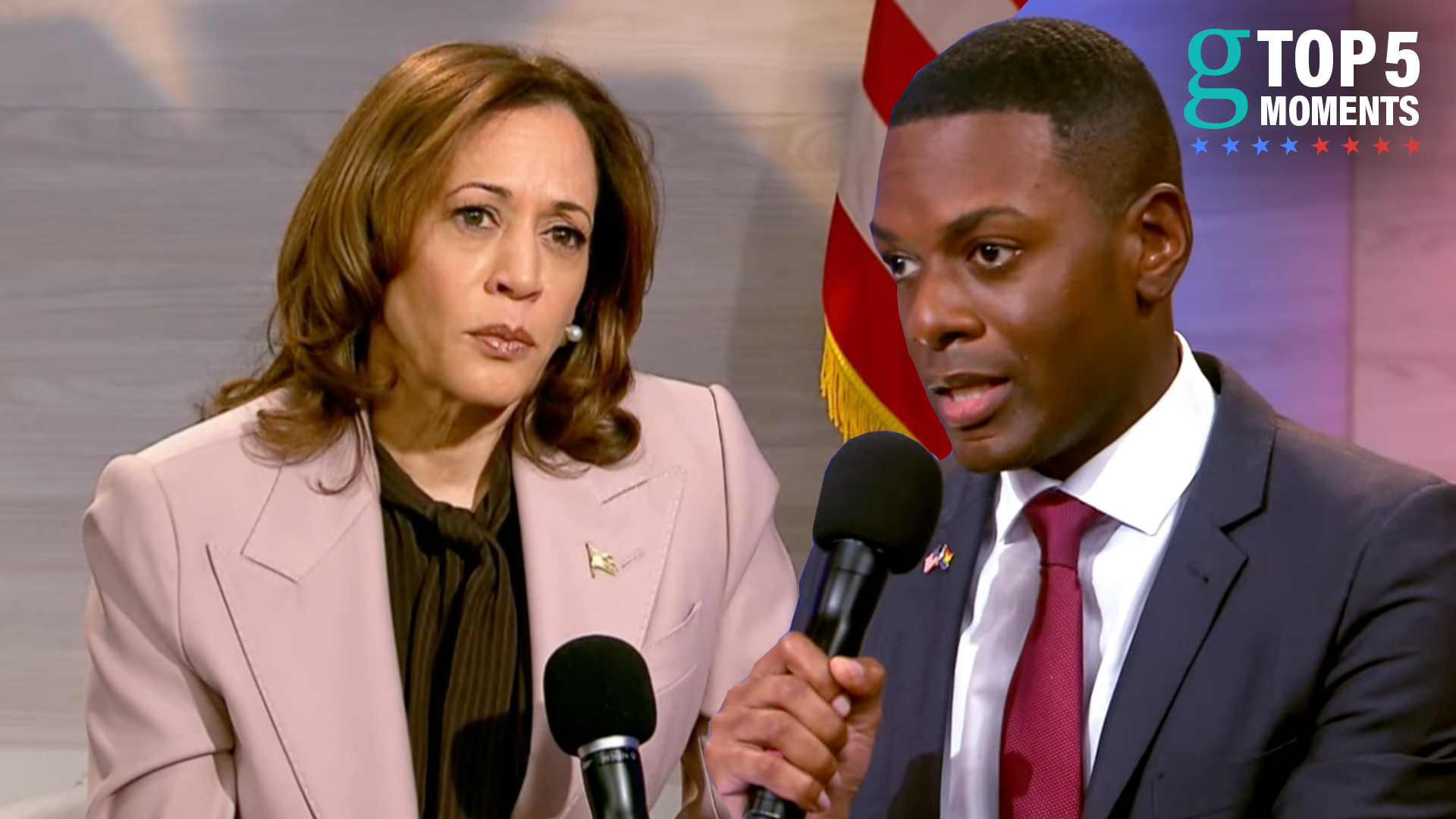Check out the top 5 moments from the National Association of Black Journalists and Philadelphia’s WHYY conversation with Vice President Kamala Harris.
Vice President Kamala Harris participated in an interview hosted by the National Association of Black Journalists (NABJ) and WHYY on Tuesday in Philadelphia. As previously reported by theGrio, Gerren Keith Gaynor, theGrio’s White House correspondent and managing editor of politics, moderated the conversation along with Eugene Daniels, White House correspondent and Playbook co-author at Politico, and Tonya Mosley, co-host of NPR WHYY’s “Fresh Air.” If you missed it, here are five highlights from the conversation.
“Not everybody has Secret Service, and there are far too many people in our country right now who are not feeling safe. I look at Project 2025, and I look at the “Don’t Say Gay” laws coming out of Florida, members of the LGBTQ community don’t feel safe right now. Immigrants or people with an immigrant background don’t feel safe right now. Women don’t feel safe right now. And so, yes, I feel safe. I have Secret Service protection, but that doesn’t change my perspective on the importance of fighting for the safety of everybody in our country and doing everything we can to, again, lift people up and not beat people down so they feel alone and are made to feel small and made to feel like they’re somehow not a part of it or us.”
“Yes, I am a gun owner and Tim Walz is a gun owner, and we’re not trying to take anybody’s guns away from them. But we do need an assault weapons ban. Assault weapons are designed to kill a lot of human beings quickly and have no place on the streets of a civil society. We need universal background checks, which, to your point about handguns, is about saying that it is just reasonable to want reasonable gun safety laws that say we should do background checks before someone can buy a lethal weapon if they’ve been found by a court to be a danger to themselves or others.”
“I think Congress ultimately will have the ability to do this work. I’m not discounting the importance of any executive action, but ultimately Congress, because if you’re going to talk about it in any substantial way, there will be hearings, and there will be a level of public education and dialogue. And I think that was part of the spirit behind the congressional action thus far to ensure that everyone can participate in this conversation in a way that elevates knowledge about history and the reference points that have that are the impetus of this conversation, especially, again, when people are trying to deny history, when people are, you know, so-called leaders are saying that enslaved people benefited from slavery. I mean, let’s talk about the delta here in terms of the work that needs to be done. It’s profound.“
“My heart breaks for this community. I learned a long time ago in my career having a background as a prosecutor, when you have these positions, when you have that kind of microphone in front of you, you really ought to understand at a very deep level how much your words have meaning. When you are bestowed with a microphone that is that big, there is a profound responsibility that comes with that. That is an extension of what should not be lost in this moment, this concept of the public trust, to then understand what the public trust means. It means that you have been invested with trust to be responsible in the way you use your words, much less how you conduct yourself, especially when you have been, and then seek to be again, president of the United States of America. And so I go back to it’s a crying shame what’s happening to those families, those children in that community, not to mention what is happening in terms of, look, you say you care about law enforcement, law enforcement resources being put into this because of these serious threats that are being issued against a community that is living a productive, good life before this happened and spewing lies that are grounded in tropes that are age.”
“I think it’s very important to not operate from the assumption that Black men are in anybody’s pocket. Black men are like any other voting group. You got to earn their vote. So I’m working to earn the vote, not assuming I’m going to have it because I am Black, but because the policies and the perspectives I have understands what we must do to recognize the needs of all communities.”
Check out the video above for more highlights and catch the full conversation here.
More About:Video
By TheGrio
By TheGrio
By TheGrio
By TheGrio
By MovieMaker Magazine
By MovieMaker Magazine
By MovieMaker Magazine
By Popviewers
By American Cars And Racing
Weekly New Episodes
Stream Now

